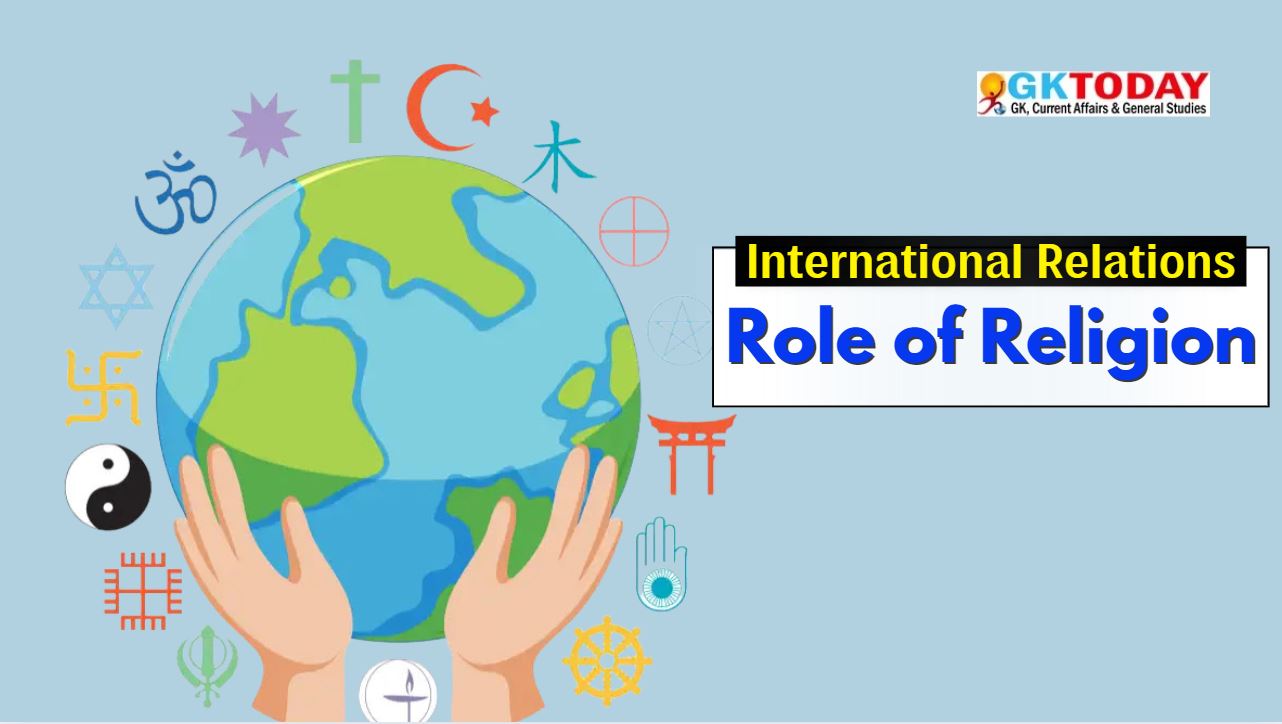International Relations and the Role of Religion
Religion plays role in shaping international relations. It influences political behaviour, identity formation, and state interactions.
Introduction to Religion in International Relations
Religion can be defined as a system of beliefs, practices, and values that often includes a moral framework. In international relations, religion affects political behaviour and state relations. It can unify or divide societies, influencing how states interact on the global stage.
Religion as a Source of Identity
Religious affiliations often intertwine with ethnic and national identities. This intersection can lead to both solidarity and conflict.
- Hindu Nationalism in India: This movement has shaped political discourse, affecting policies and inter-community relations.
- Islamic Identity in the Middle East: Religious identity plays important role in regional politics, impacting alliances and conflicts.
Religion and Conflict
Religious conflicts have historical roots and contemporary implications. They often arise when religious identities clash.
- Sunni-Shia Divide: This longstanding conflict continues to influence Middle Eastern politics.
- Israeli-Palestinian Conflict: Religious claims to land exacerbate tensions in this enduring dispute.
- Case Studies:
- Bosnia: Religion played role in the ethnic conflict during the 1990s.
- Rwanda: Religious affiliations influenced the dynamics of the genocide.
Religion and Diplomacy
Religious leaders often serve as mediators in conflicts, promoting peace and dialogue.
- Pope John Paul II: His efforts in Eastern Europe exemplify the potential of religious diplomacy.
- Interfaith Dialogues: These initiatives encourage understanding and cooperation among different faiths.
- Humanitarian Efforts: Religious organisations play a vital role in peacebuilding and aid distribution.
Religion and Globalization
Globalisation has facilitated the spread of religious ideologies across borders.
- Evangelical Christianity: This movement has gained international traction, influencing societal values.
- Islamic Revivalism: This resurgence affects political movements and identity formation worldwide.
- Transnational Networks: Religion often serves as a unifying factor in global movements.
Religion and Human Rights
The relationship between religion and human rights can be contentious.
- Tensions: Religious laws may conflict with international human rights norms.
- Case Studies:
- Blasphemy Laws in Pakistan: These laws raise concerns
Religion and International Organizations
Religious groups exert influence within international bodies.
- United Nations: Faith-based organisations contribute to discussions on development and humanitarian aid.
- Examples:
- World Council of Churches: Engages in global peace efforts.
- Islamic Relief: Provides humanitarian assistance worldwide.
Religion and Soft Power
States utilise religion as a tool for soft power.
- Saudi Arabia: Promotes Wahhabism to extend its influence.
- Cultural Diplomacy: Religious exchanges encourage international relations.
- Religious Tourism: This sector impacts economic and diplomatic ties.
Case Studies
Several case studies illustrate the role of religion in foreign policy.
- S. Foreign Policy: Evangelical groups influence decisions, particularly in the Middle East.
- India and Pakistan: Religious identities shape bilateral relations and conflicts.
- European Union: Religion affects immigration and integration policies.
Challenges and Critiques
The role of religion in international relations faces several critiques.
- Exacerbating Conflicts: Critics argue that religion fuels violence and division.
- Secularism: The challenge of maintaining secular governance is in many regions.
- Balancing Interests: States struggle to balance religious freedom with national interests.
Future Trends
The visibility of religion in global politics is increasing.
- Peacebuilding Potential: Religion may play a role in resolving conflicts and promoting harmony.
- Multipolar World: The role of religion is evolving as power dynamics shift.


